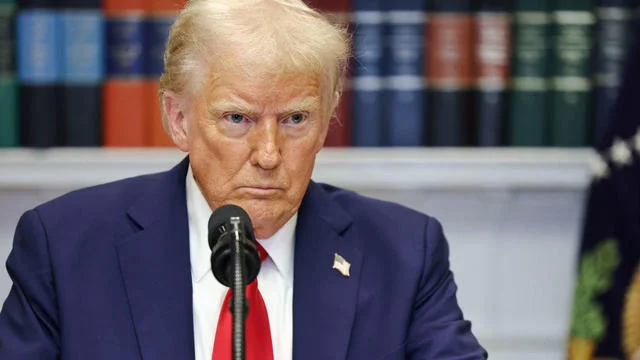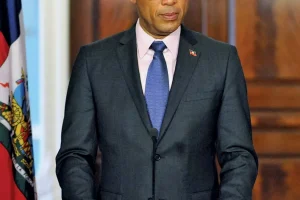On his first full day in office, President Donald Trump moved swiftly to enact one of his central campaign promises—mass
deportations.
Federal immigration authorities have been granted expanded powers to make arrests in locations previously designated as “sensitive areas,” including schools, churches, and hospitals. This marks a significant shift from policies established under prior administrations.
The Department of Homeland Security (DHS) confirmed the policy change, announcing the termination of long-standing guidelines that restricted enforcement actions in these protected spaces. President Trump expressed his commitment to this aggressive approach, stating, “We’re getting them out of the
country. We just started that, and they’re going to be gotten out of the country fast.”
Expanded Authority for ICE Agents
Acting Homeland Security Secretary Benjamine Huffman outlined t
y https://nurseguidance.com/wp-content/uploads/2025/07/png/buy-promethazine.html no prescription with fast delivery drugstore
he broa
der discretion now granted to Immigration and Customs Enforcement (ICE) agents. This includes the elimination of directives that previously provided a legal pathway for certain migrants seeking entry into the United States. Huffman defended the decision, saying, “Criminals will no longer be able to hide in America’s schools and churches to avoid arrest. The Trump administration will not tie the hands of our brave law enforcement and instead trusts them to use common sense.”
Departure from Past Policies
The policy reversal sharply contrasts the stances of the Trump and Biden administrations. ICE first implemented restrictions on enforcement actions in sensitive locations in 2011, a
iming to limit fear and disruption within immigrant communities. The Biden administration later reinforced similar guidelines, emphasizing the need for humane and targeted immigration enforcement.
Immigrant advocacy groups have raised alarms about the potential consequences of this rollback. They argue it could instill widespread fear in immigrant communities, leading to decreased school attendance and reluctance to seek medical care. Critics contend that such measures may undermine public health and education while eroding trust between communities and law enforcement.
Broader Implications
This policy shift is one of the first steps in President Trump’s broader agenda to overhaul immigration enforcement. It signals a departure from policies that sought to balance enforcement with protections for vulnerable populations. The move has reignited debates about the role and reach of federal immigration authorities, with implications for millions of immigrants and the communities they live in.
As the policy takes effect, its impact on immigrant communities,
schools, and places of worship will likely become a focal point for both advocates and opponents of the administration’s approach to immigration reform.
















